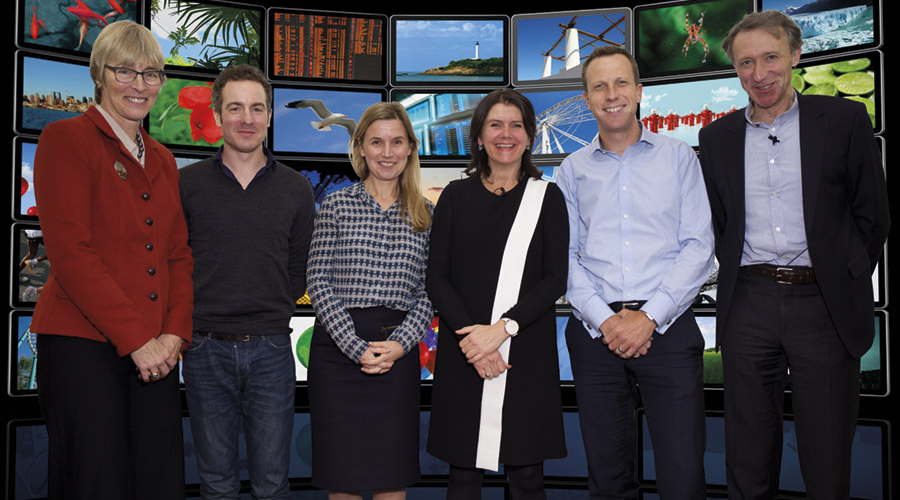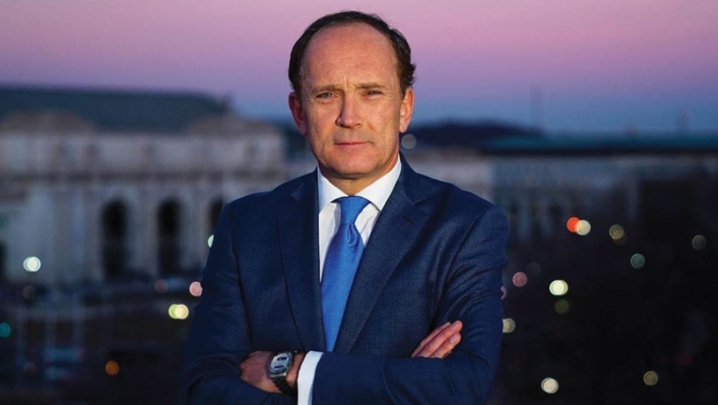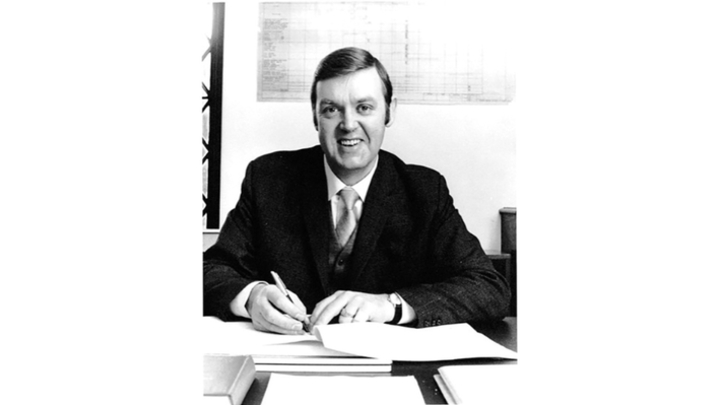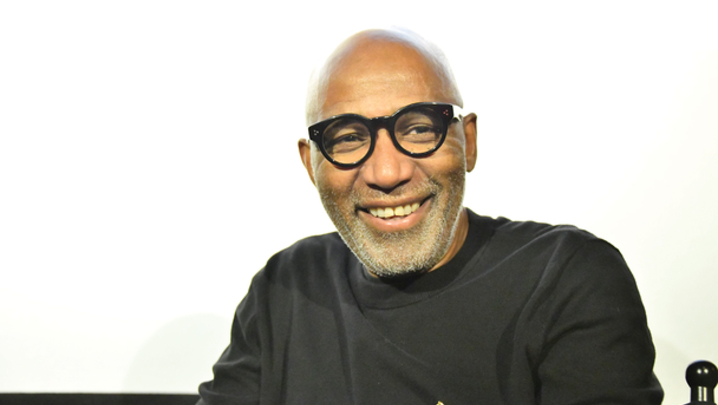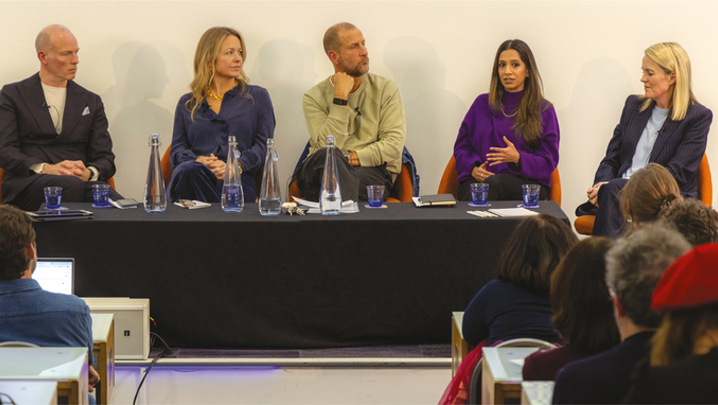The coming avalanche of connected-TV and mobile services will leave linear TV viewing largely intact, hears Maggie Brown
The implications of the rapid uptake of connected-TV and the explosion of mobile devices on which users can find and watch content were teased out at a packed RTS early-evening event before Christmas.
As panellist Dan Saunders, Head of Chromecast for the UK, Nordics and Netherlands at Google, put it with a dash of self-interest: "Lucky consumers... The UK is white hot right now. So many different choices. Awareness is soaring about the ways to find content."
Google Chromecast is doing its bit as a modestly priced and convenient device: it plugs into your TV set and uses wi-fi to link programmes to your smartphone or tablet.
It is just one example of the avalanche of products and services from internet and telecoms companies and video suppliers such as Netflix, Amazon Prime and Roku. They are all piling into different parts of the market.
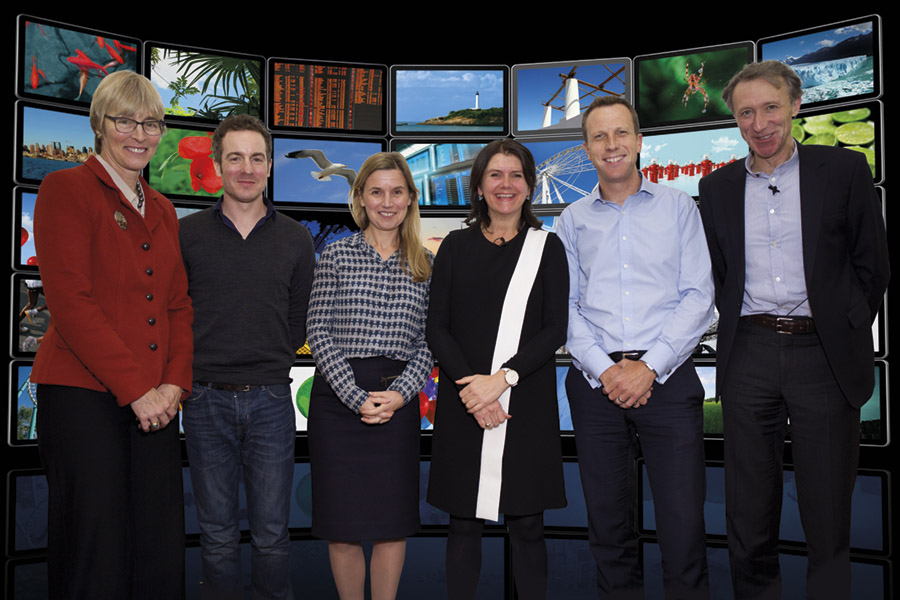 Connected TV pannelists
Connected TV pannelists
The other four experts at the event were: Emma Lloyd, Sky Business Development Director; Ilse Howling, Managing Director, Connected TV, Digital UK; Richard Halton, CEO of YouView; and Stephen Taylor, Director of Redshift Strategy consultancy. All are at the front line of internet-driven TV. Howling, for example, had just announced the award of major contracts to build and test an updated Freeview-branded, connected-TV service aimed at the mass market. She said we are in a "golden age" for viewers.
The debate focused on what connected television means to viewers, content providers and broadcasters.
In a scene-setting presentation, Taylor (who recently assessed connected-TV for Ofcom) said it seemed to be destroying the divide between pay-TV and free-to-air television, because it facilitated an alternative – "pay-lite".
Moreover, he predicted: "This is going to be the biggest section of the market by 2020."
Viewers are increasingly prepared to pay for specific content. As the evening's Chair, Kate Bulkley, observed: "It is no longer a case of either free or all you can eat."
Lloyd agreed, adding: "Now TV is an entirely new brand for Sky that has emerged over the past 18 months or so. Four-fifths of the people who take Now TV from Sky have never paid for TV before. We are very much tapping into those who said pay-TV is not for me." These viewers are buying short-term passes for sports, movies and entertainment.
The second insight from Taylor was that linear TV viewing in the home, supported by the appeal of big screens, will remain resilient. This should prevent further fragmentation of audiences.
This might suggest that the dice are loaded in favour of the broadcasters.
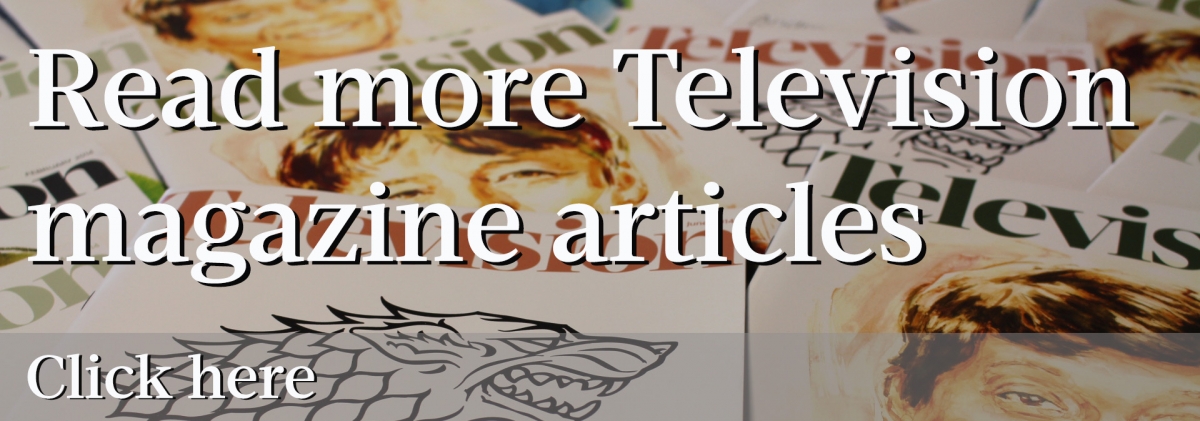 By 2020, average TV consumption could rise to 4 hours 50 minutes per day, from the current 4 hours 33 minutes, with total viewing driven by increases in mobile viewing as 4G spreads.
By 2020, average TV consumption could rise to 4 hours 50 minutes per day, from the current 4 hours 33 minutes, with total viewing driven by increases in mobile viewing as 4G spreads.
News goes to mobile first, then sports, then kids. One by one, they go.
But linear viewing of scheduled TV would still comprise around two-thirds of total viewing – about 20 minutes less per day than now.
Forecasts that up to 90% of UK homes would have an internet-connected main TV set by 2020 (more than seven times current penetration) were not controversial. But the interpretation put on that figure could be.
Halton issued a caution on this point: "Be careful with those charts – that's the average."
The same charts for 16- to 34-year-olds would be radically different, he pointed out: "The end game is way beyond what we are projecting in 2020. News goes to mobile first, then sports, then kids. One by one, they go.
"In any genre of TV today, I would be looking harder. What are the opportunities to go into different formats? Be really careful."
Regarding the forecast that two-thirds of all TV watching in 2020 would be live, Halton simply said: "I find that hard to believe".
Taylor added that we are in a confusing marketplace, because the players are in it for different reasons. Manufacturers are struggling to sell hardware with special features. Broadband suppliers are trying to win us over on quality of user experience. Vodafone and EE are talking about launching new TV services, following the lead of BT Vision, which has invested in sport "to defend itself".
This could favour broadcaster-driven systems, because consumers first of all want content. How it is presented to them is less important, argued Taylor.
Halton, whose YouView offering combines live TV with a seamless catch-up service, agreed: "The critical thing [in developing YouView] was the integrity and simplicity of product and the focus on content discovery.
"The involvement of the broadcasters gave it that focus... Its virtue is the ease of finding the programme you want. Eighty per cent of TV is live. Having a device that gives you that core service and the extension into catch-up is a brilliant application." But there was gentle laughter when he said that sales of YouView boxes were "on the way to 2 million" homes. The service has not been a retail success and is largely used by consortium members BT and TalkTalk.
"Any provider today launching a set-top box without a distribution partner such as Sky or BT will struggle," was Halton's rejoinder.
"My biggest concern is that we screw things up by overcomplicating them and get too far ahead of where millions of mass-market homes are."
In contrast, Howling, concerned with updating the Freeview platform for a connected era, is attuned to the mass market; Freeview is the UK's biggest digital TV platform. She said: "What do [people] want next?... They'd like to be able to find programmes faster and be able to watch more of what they want to watch when they want. Freeview Connected is about giving them that." There will be a "backwards" EPG that combines linear channels with catch-up and on-demand, but no date has been fixed for launch.
"We do see it as something you buy with a new television. There is no obligation to subscribe and it will work with any broadband provider," said Howling. "What Freeview homes value is that Freeview is free."
By comparison, Saunders is more of a disrupter. "Chromecast turns things on their head. As a connected-TV solution, it really allows you to have an experience driven by mobile. You search and decide through your mobile tablet device. Simple," he claimed.
Taylor agreed, adding: "Google, if it does a single thing, is getting us used to using our mobile phones as a remote control.
"A big step forward, from Google's point of view, is that it is a personal device." Critically, this means that the search engine can track you via your mobile. This led to a question about whether rising numbers of mobile viewers would see more demand for shorter, more concise programmes.
Lloyd said Sky was "watching carefully", but so far thought it unlikely.
Halton suggested that, overall, "producers should do really, really well out of it. Content providers, what's not to like?" It meant, he said, that they could sell their programmes to a wider variety of distributors, generating more money to invest in making content.
Howling was more grounded: "The other thing is that we just about understand this. For so many people in this country, what we are talking about would not make a huge amount of sense.
"The percentage of people with smart TVs is tiny. This is something they will really love. They will get a lot out of it, but we must remember to keep it simple and easy to use.
"My biggest concern is that we screw things up by overcomplicating them and get too far ahead of where millions of mass-market homes are.
"Think of us going home, tonight, to crash down in front of the TV. We want something easy."
'Connected TV: decoded' was held at the Cavendish Conference Centre in central London on 26 November. It was produced by Stephen Gaynor, Sky's Senior Commercial Development Manager.

